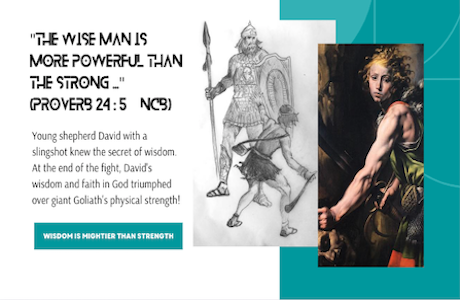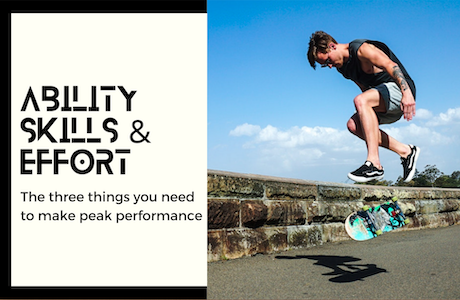The ‘Queen of Crime’, Lady Mallowan, the best-selling fiction writer of all time - with sales topping up to 2 billion copies, Dame Agatha Mary Clarissa Christie, who with all those accolades, surprisingly, didn't believe in the saying that: necessity is the mother of invention. On one or more occasions she was quoted as saying: ‘I don't think necessity is the mother of invention. Invention, in my opinion, arises directly from idleness, possibly also from laziness - to save oneself trouble.’
Still wondering about that, She was not alone but had great company on the opposite side. Alfred North Whitehead, the defining figure in both Mathematics and the Philosophical School, also didn't believe. Whitehead went further in supporting Agatha Christie's opinion by expanding more with these words: ‘Inventive genius requires pleasurable mental activity as a condition for its vigorous exercise. "Necessity is the mother of invention" is a silly proverb. "Necessity is the mother of futile dodges" is much closer to the truth. The basis of growth of modern invention is science, and science is almost wholly the outgrowth of pleasurable intellectual curiosity.’ And there’re countless others who nod ‘yes’ to that kind of thinking.
But the persistent application of that saying in modern society proves that there is some undeniable truthfulness in the said old adage. There’re a lot of cases to support in favor of the argument rather than the contrary. This article is going to present a few remarkable cases of necessity-driven innovations and we'll conclude that: necessity is truly the mother of inventions.
Let’s go back to its background story. The saying "necessity is the mother of invention" is believed to have originated from the Roman poet Plautus. He wrote in his play "Asinaria" (The Comedy of Asses) "Necessity is the mother of invention" which means that when people are faced with a problem or a need, they will come up with creative solutions to meet that need.
The phrase highlights the idea that when people are in dire need of something, they will find a way to make it happen no matter what. This phrase has been around for centuries, and it implies that when people are in a situation of urgency, they will come up with new and innovative ideas to solve the problem at hand. The fight-or-flight physiological response is one example of solving problems, urgently. This is the automatic reaction that occurs in the situation of a perceived harmful event, attack, or threat to survival.
The saying emphasizes the power of human ingenuity and how it is driven by the need to survive, improve, and evolve. It reflects the idea that when people are in difficult situations, they will find ways to overcome them. This process of overcoming difficulties can lead to new ideas, technologies, and solutions.
The phrase "necessity is the mother of invention" is relevant today, not just in technology but in all aspects of life, and it is used to express the idea that problems or obstacles can lead to creative solutions, progress, and advancement.
Smartphones: Necessity-Driven Innovations:
For your information, the smartphone is one popular product today created out of necessity. The first smartphones were designed in the early 1990s, but they didn't become mainstream until the early 2000s. The need for a device that could make phone calls, send messages, and access the internet on the go, led to the development of the modern-day smartphone.
Before the invention of smartphones, people had to carry multiple devices with them, such as a cell phone, a PDA (personal digital assistant), and a laptop. The need for a single device that could perform all of these functions led to the creation of the smartphone. The first smartphones combined the functionality of a cell phone with the capabilities of a PDA, such as email, calendar, and internet access.
Over time, the capabilities of smartphones have expanded to include a wide range of features, such as GPS navigation, social media, and mobile banking. Today, smartphones have become an essential part of everyday life for many people, allowing them to stay connected with loved ones, access information, and complete tasks on the go.
The development of smartphones was driven by the need for a more convenient and efficient way to communicate and access information. The success of the smartphone is a perfect example of how the saying "necessity is the mother of invention" applies in the technology industry. Smartphones have become a necessity for many people, and it has changed the way we live and communicate. According to Statista, the number of smartphone subscriptions worldwide, as of 2023, surpassed six billion and is forecast to grow further. The data showed that this is equivalent to almost 85 percent of the world’s population. Frankly speaking, it’s impossible for a worthless device to attain such high usage. The inference is - the smartphone is truly essential for everyday life and almost everyone needs it.
"Necessity is the Mother of Innovation: A Comedic Take"
When life gives you lemons, you make lemonade. But when life gives you a pandemic, you make a face mask out of a t-shirt. Ha ha ha! Necessity truly is the mother of innovation, and you know what, 2020 has been a year for necessities.
But before we dive into the world of COVID-19 innovation, let's take a look back at the history of necessity-driven innovation. We all know that cavemen discovered the fire after rubbing two sticks together for hours on end, but did you know that the wheel was also a necessity-driven invention? The cavemen (and women) were tired of carrying heavy rocks and boulders on their backs, so they came up with the brilliant idea of putting the rocks on a circular object and rolling it instead. Genius isn’t it?
Fast forward to the 21st century, and necessity is still pushing us to come up with new and creative solutions. The pandemic has forced us to rethink the way we live and work, leading to innovation in remote learning, telemedicine, and contactless payment systems.
But let's not forget the more lighthearted innovations born out of necessity. With the rise of Zoom fatigue, people have gotten creative with their virtual backgrounds, from tropical beaches to outer space. And let's not forget the "quarantine haircut" trend, with many taking the scissors to their own hair in the absence of salon visits.
"Zoom Backgrounds: A Necessity-Driven Innovation"
The pandemic has also led to a rise in remote work, which in turn has led to an increase in Zoom meetings. And with so many Zoom meetings comes Zoom fatigue. To combat the monotony of staring at the same four walls, people have taken to spicing up their virtual backgrounds. From tropical beaches to city skylines, the possibilities are endless. Thanks to the necessity of remote work, we now have the ability to take a virtual vacation during our workday.
Necessity truly is the mother of innovation. From the wheel to the toilet paper bidet, history has shown us that when faced with a problem, humans will come up with a solution. So when life gives you a pandemic, make sure to think outside the box and come up with a solution that not only solves the problem but also improves our lives in some way.
Necessity is the Mother of Invention in the Context of Artificial Intelligence:
One notable and profound example of the saying "necessity is the mother of innovation" in the context of artificial intelligence technology is the development of deep learning. Deep learning is a subfield of machine learning that involves the use of neural networks with multiple layers or "deep" layers, to process and analyze large amounts of data.
Before the advent of deep learning, traditional machine learning algorithms were limited in their ability to process and make sense of large, complex datasets. However, with the explosion of data in fields such as image and speech recognition, the necessity for more powerful and sophisticated algorithms became apparent.
Researchers and engineers in the field of artificial intelligence began to develop and refine deep learning algorithms, such as convolutional neural networks (CNNs) and recurrent neural networks (RNNs), which have the capability to process large amounts of data and learn patterns and features that would have been impossible for traditional machine learning algorithms to detect.
As a result, deep learning has been able to achieve breakthroughs in a variety of applications such as image classification, natural language processing, and speech recognition. The necessity to process large amounts of data and to improve the performance of AI systems led to the development of deep learning, which has had a profound impact on the field of artificial intelligence and has led to many new innovations and advances.
Atomic Bomb: Necessity-Driven Invention:
As said before, "Necessity is the mother of invention" is a phrase that is often used to describe how difficult situations or challenges can lead to the development of new and innovative solutions. During World War II, the United States found itself in a race against time to develop the atomic bomb before Germany could do so. The Germans were thought to be ahead in the race, but under the guidance of scientist Albert Einstein, the Americans were able to successfully develop the atomic bomb in just a few years.
Einstein, who was a refugee from Nazi Germany, alerted the US government to the potential of nuclear weapons and the possibility that Germany was working on developing them. This prompted the US government to launch the Manhattan Project, a top-secret research and development program aimed at creating an atomic bomb before Germany could.
The Manhattan Project brought together some of the best minds in science and engineering, including physicist J. Robert Oppenheimer, who led the project. They worked tirelessly to develop the bomb, using the latest technologies and techniques available at the time. The project was extremely successful, and the first atomic bomb was detonated on July 16, 1945 in a test code-named Trinity.
The atomic bomb played a crucial role in bringing an end to the war. In the same year 1945, the bombings of Hiroshima and Nagasaki on August 6 and 9, respectively, resulted in the deaths of more than 200,000 people, but it also forced Japan to surrender and ultimately ended the war.
To summarise, necessity was the mother of invention in this case as the potential of nuclear weapons was known and that, the Germans were thought to be ahead in the race of developing it, Einstein's warning prompted the US government to launch the Manhattan Project, a top-secret research and development program which brought together some of the best minds in science and engineering. The project was extremely successful and the atomic bomb played a crucial role in bringing an end to the war.

























![Money Smart: The Ultimate Financial Freedom Blueprint [Available at Amazon; Grab your Copy Today!]](https://blogger.googleusercontent.com/img/a/AVvXsEiE1mIcixWW5PSwxpO1Ey1xVWg4Eo86En1Jc8JnvNBo3g8o0XRyCdQm6gWoVwfitHRRXkwf72wHBeABHUESmukKf29BCajHwLcMP97z37PNQeomunfkAAMTYfLNSc5gDzwZXUG9YJST38xLu6PleLeX-4aAf44Ch6jIPWUqixNHyQZfr3FBN-ZJCReMGyE=s495)


